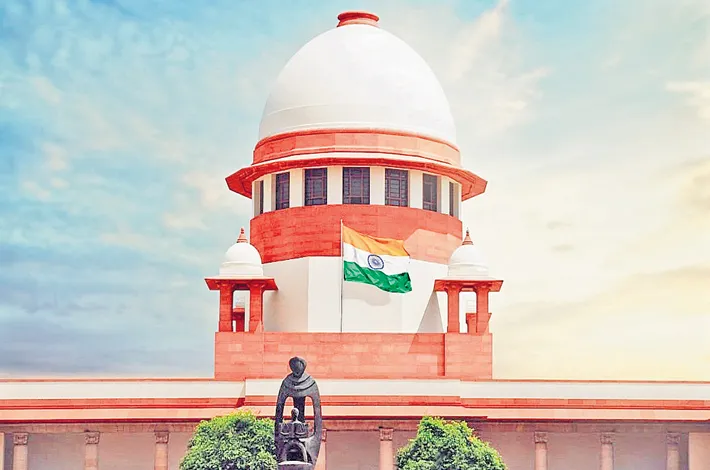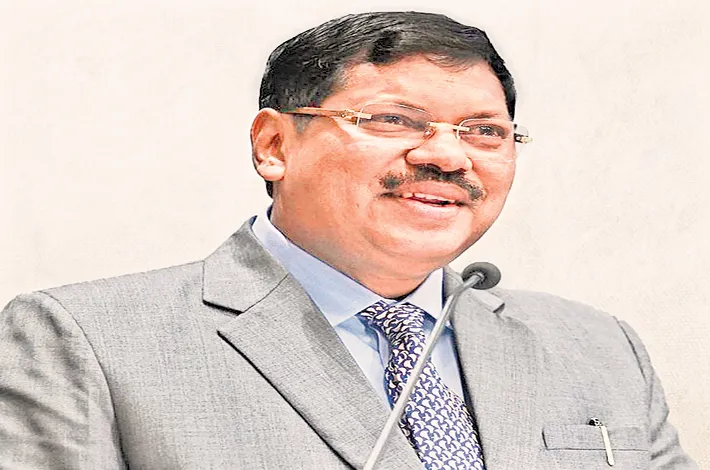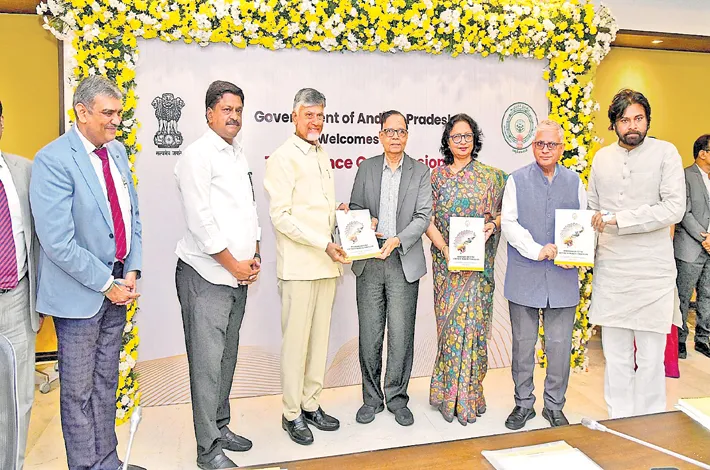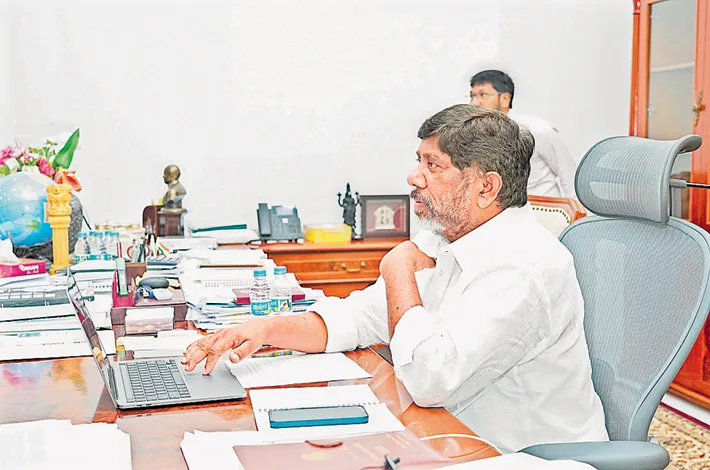Beyond the Waqf Bill towards Hindu-Muslim synergism
15-04-2025 12:00:00 AM
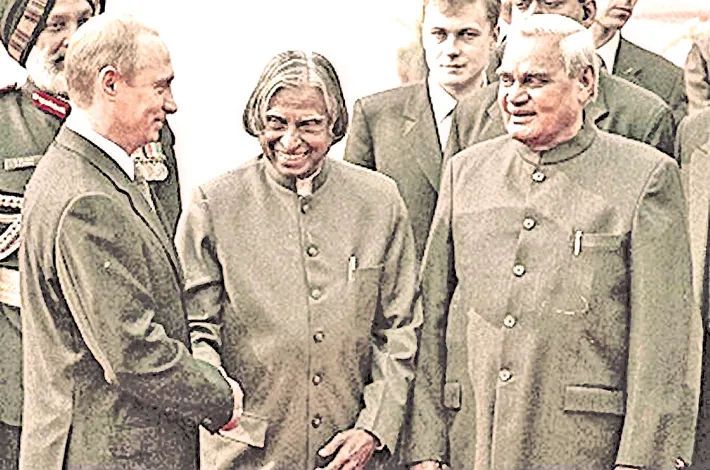
Do not fall prey to the divisive, politically-driven agenda. Instead, Hindus and Muslims must join hands for creating a better India
In 2002, Prime Minister Atal Bihari Vajpayee’s selection of the missile scientist Dr APJ Abdul Kalam as the 11th President of India was nothing short of a masterstroke. It was Vajpayee who personally called Dr Kalam and persuaded him not to decline the offer. As recounted in his autobiography, ‘Wings of Fire’, an overwhelmed Dr Kalam requested an all-party political consensus on the decision, which was achieved by Vajpayee by bringing the Congress-led UPA on board.
India’s 200 million strong Muslim community is among the poorest sections of society and is in need of inspiration, motivation and empowerment. This is not in the interest of Muslims alone but also in the interest of the majoritarian Hindu community. Unless Indian Muslims are empowered to walk shoulder-to-shoulder with the Hindu community in peace and harmony, India will continue to suffer from stunted growth.
At a time when India’s Muslim community is feeling insecure over the passage and enactment of the Waqf (Amendment) Bill, 2025, right-thinking Hindus, Dalits and members of other minorities must not remain silent spectators. Reaching out to the Muslim community is important because it is being repeatedly targeted, taunted and insulted in various ways, be it through ‘Bulldozer politics’ or by raking up controversies from the Mughal era.
This is something that is not seen happening with other poor sections, such as the Dalits, SCs and STs, and minorities such as Sikhs, Christians, Buddhists and Jains. On April 3 and 4, the Wakf Bill was passed by both Houses of Parliament, and on April 5th, the Bill promptly received President Droupadi Murmu’s assent, paving the way for its enactment as the Unified Waqf Management, Empowerment, Efficiency, and Development Act, 2025.
The inclusion of women, two non-Muslims and OBC Muslims on the Waqf Boards in the new Act has been welcomed by Prof. Faizan Mustafa, Vice-Chancellor, Chanakya National Law University, and one of India’s leading experts on constitutional law. Expressing reservations on the legal validity of the ban on non-Muslims from donating property under Waqf, he has also called the new law a “missed opportunity” towards UCC. In his view, a common law could have been created for the management of all religious properties.
The plight of Indian Muslims: During the parliamentary debate on the bill, the BJP leaders, including Union Home Minister Amit Shah and Minority Affairs Minister Kiren Rijiju, said that the Waqf reforms were aimed at the welfare of poor Muslims, women and children. Questions were also asked about how many schools, hospitals and orphanages were built for poor Muslims on Waqf properties.
Study after study, including the oft-quoted Sachar Commission Report (2006), point to the serious socio-economic backwardness of Indian Muslims. They are not only among the least educated among all religious communities in India, but their backwardness, as compared to non-Muslims, has also become a matter of concern. A 2024 study published by Aliah University, Kolkata, attributed this backwardness to factors such as “large family size, lack of a link between madrasa education and modern education, economic poverty, negative attitudes towards girls’ education, etc.”
In his book, ‘Indian Muslims: Where have they gone wrong?’, published two decades ago, the late educationist and Congressman, Dr Rafiq Zakaria, said he was “distressed by the miserable condition of the Muslim youth” who had become rudderless and lost hope in the country. He described the condition of the Muslim community as “worse than that of the Scheduled Castes and Scheduled Tribes”.
Whether it is Dr Zakaria, the US-based psychiatrist, Dr Muhammed Qutubuddin (founder trustee and former president of the American Federation of Muslims of Indian Origin), or journalist Ghazala Wahab, all emphasise the need for self-empowerment in the Muslim community. Here, credit is due to the BJP for the abolition of ‘triple talaq’, through the enactment of the Muslim Women (Protection of Rights on Marriage) Act, 2019.
Dr Qutubuddin has stressed positive thinking for the Muslim youth and focusing on education, women’s empowerment, establishment of educational institutions and hospitals, besides working towards unity among Muslims and building alliances with other minorities and Dalits. Wahab, in her interviews and writings, has said that wealthier and empowered Muslims need to step forward to facilitate education and employment opportunities for those in the community who need it.
Right-thinking Hindus and members of other minorities also need to go out of their way to reach out to the Muslim community to assist them in their empowerment. At a time when the nation’s largest minority is feeling insecure, the civil society and public-spirited institutions, dedicated to the values of inclusivity, diversity and social harmony, need to reach out.
The very foundation of Hindustani classical music and its many gharanas represents a rich synergy between Hindus and Muslims. Likewise, Indian food, language, culture, architecture and even spiritualism have been deeply influenced by Persian, Afghan, Central Asian and Arabic strains. Islam entered India, not violently from the north, as is the popular mistaken belief, but from the south.
What the poorest of Indian Muslims need is a helping hand from the privileged members of their own community and support from the majoritarian Hindus. Patriotism demands that we extend this helping hand.





